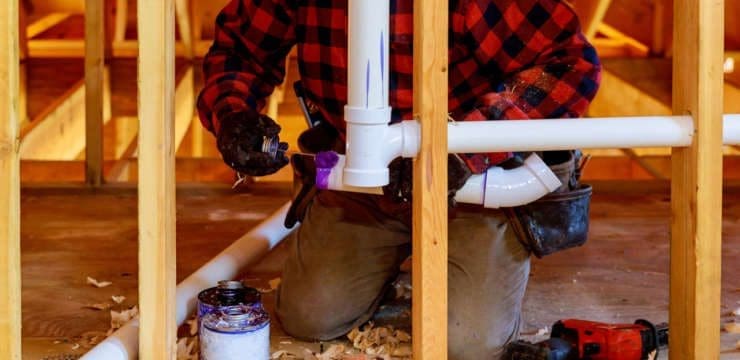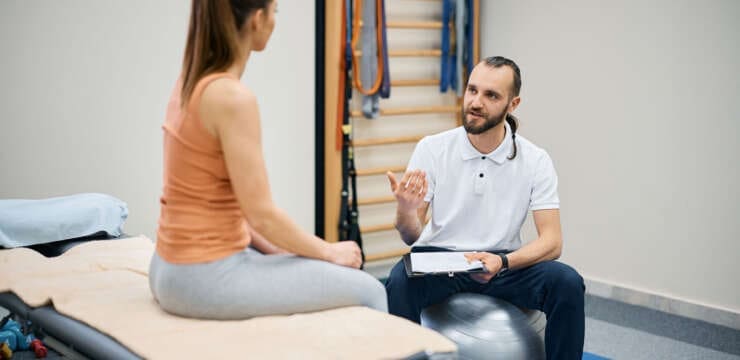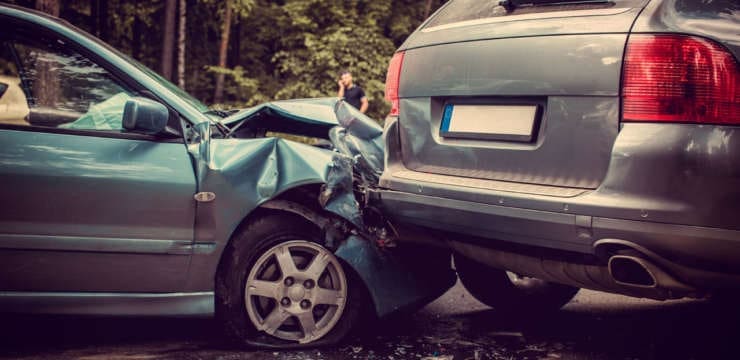
Table of Contents
The Healing Power of Sleep After a Car Accident: A Natural Recovery Boost

Introduction: Why Sleep Matters in Post-Accident Recovery
After a car accident, most people think about pain relief, therapy, and doctor visits. But there’s another critical piece of recovery that’s often overlooked — sleep. Not just any sleep, but deep, restorative rest that allows your body to reset and repair.
During sleep, your body heals injured tissues, regulates hormones, and manages stress. When that rest is missing or disrupted, the body’s ability to recover slows down significantly. Inflammation stays high, pain can intensify, and emotional distress may worsen.
Health professionals working in natural and integrative recovery often emphasize the role of sleep alongside chiropractic care, nutritional coaching, and physical therapy. And for people healing from motor vehicle accidents (MVAs), prioritizing sleep can make the difference between short-term relief and long-term wellness.
What Happens to the Body During Sleep?
When you sleep, your body enters a state of repair. In the deeper stages of sleep, it releases growth hormones that rebuild tissue, regenerate cells, and fight off infection. At the same time, your brain resets emotional balance and strengthens memory.
This phase is particularly crucial for individuals recovering from a motor vehicle accident. Injuries like whiplash, sprains, and bruises all benefit from more blood flow and immune support — both of which improve during deep sleep.
Health coaches and injury recovery experts often recommend improving sleep as a foundation for healing. Without rest, all other therapies — even the best ones — won’t work as effectively.
How Lack of Sleep Slows Down Healing
Pain, stress, and anxiety can all interfere with your ability to get quality rest. Unfortunately, these are also among the most common problems people encounter after a car crash. Over time, sleep deprivation adds another layer of difficulty by slowing down your body’s healing systems.
Poor sleep increases cortisol — the body’s stress hormone — and reduces melatonin and growth hormones. This hormonal imbalance affects the rate at which tissues repair, the effectiveness of your immune system in fighting inflammation, and the intensity of pain you experience.
When sleep is poor or broken, even mild injuries can take weeks or months longer to heal. Integrative practitioners often treat sleep as a “vital sign” — just like heart rate or blood pressure — because it influences every body system.
Common Injuries That Need Sleep to Heal
Injuries from car accidents aren’t always visible. Strained muscles, irritated nerves, and inflamed joints are often hidden beneath the surface. These “soft tissue injuries” depend heavily on sleep for recovery.
During deep sleep, the body increases blood flow to these injured areas, delivering nutrients and oxygen needed for healing. Sleep also helps lower inflammation and regulate pain perception.
If you’re not getting enough rest, your body may remain in a state of high stress, which can delay healing. This is why health-focused recovery programs often put sleep at the top of the checklist.
Tyson Mutrux Injury Blog, n.d.
Emotional Distress, PTSD, and Sleep Disruption
A car accident is not just physical — it’s emotional too. Many people suffer from post-traumatic stress symptoms like fear, flashbacks, or a racing mind. These mental health challenges can keep you up at night or wake you up in the early hours.
Emotional stress increases cortisol and adrenaline, which are chemicals that signal “danger” to your body. This makes it harder to fall asleep and stay asleep. As a result, your body doesn’t get the chance to repair itself fully.
Coaches and practitioners in holistic wellness often incorporate relaxation exercises, journaling, breathwork, or mindfulness techniques to help calm the nervous system and make sleep more accessible.
Sleep and Legal-Medical Documentation
If you’ve been injured in a car accident and are pursuing a personal injury case, sleep matters more than you might think. Ongoing insomnia, fatigue, or sleep disruption can be documented symptoms that affect your case.
Legal and medical teams often collaborate to assess the impact of injury-related sleep issues on daily functioning, including work performance, driving ability, and emotional stability.
Medical providers who focus on both physical recovery and legal reporting often ask patients to keep sleep logs, describe their night pain, and provide documentation for any medications or therapies used to improve sleep.
Chiropractic and Integrative Therapies for Better Sleep
Many people are unaware that chiropractic care can enhance sleep quality. By reducing joint and spinal tension, chiropractic adjustments help relieve pain that interferes with rest. When muscles relax and nerves are less irritated, the body can settle into deeper sleep more easily.
Integrative therapies, such as acupuncture, massage, and nutritional counseling, also support better sleep by calming the nervous system, reducing inflammation, and balancing hormones naturally.
Some recovery centers even include sleep education as part of their wellness programs, helping individuals develop better sleep habits and understand how rest supports their overall healing.
Tips to Sleep Better After a Motor Vehicle Accident
If sleep has been difficult since your accident, you’re not alone. Here are some simple strategies recommended by health coaches and recovery specialists:
- Stick to a bedtime routine – Go to bed and wake up at the same time each day.
- Avoid screens before bed – Reduce exposure to phones and TVs for at least an hour before sleep.
- Use calming rituals – Deep breathing, stretching, or journaling can help you wind down.
- Create a sleep-friendly space – Keep your bedroom dark, cool, and quiet.
- Support with nutrition – Some foods, like bananas, almonds, and chamomile tea, can promote better sleep naturally.
Tennessee Injury Attorney, n.d.
Clinical Insights from Dr. Alexander Jimenez
Dr. Alexander Jimenez, DC, APRN, FNP-BC, is a recognized expert in post-accident care based in El Paso, Texas. With a dual license in chiropractic and family practice, Dr. Jimenez blends medical knowledge with hands-on therapy to treat soft tissue injuries, pain, and sleep disruption.
His clinical model emphasizes:
- Dual diagnosis – Addressing both visible injuries and underlying causes
- Advanced imaging – Using diagnostics to detect hidden injuries
- Legal-medical integration – Providing support for both treatment and personal injury claims
- Whole-person care – Including nutritional support, sleep coaching, and rehabilitation
Dr. Jimenez’s unique ability to handle both the physical and legal dimensions of recovery allows patients to focus on healing without falling behind in paperwork or documentation.
More of his insights and clinical practice information can be found at dralexjimenez.com, LinkedIn, and across his social platforms.
Final Thoughts: Sleep Is a Natural Superpower for Healing
Sleep is not just a way to rest — it’s one of the most powerful forms of natural medicine your body has. After a car accident, your immune system, hormone levels, and nervous system all depend on quality rest to recover.
Whether you’re managing whiplash, nerve pain, or stress-related insomnia, sleep should be part of your recovery plan. Alongside chiropractic adjustments, nutritional changes, and legal support, sleep plays a crucial role in providing the foundation for physical and emotional healing.
By prioritizing rest and working with professionals who understand its value, you can improve your recovery timeline, reduce complications, and feel better sooner.
References
- Complete Care. (n.d.). Fatigue after an accident.
- Daniel Stark Law. (n.d.). The vital role of sleep in injury recovery.
- OrthoCarolina. (n.d.). Sleep: The secret ingredient of injury recovery.
- Tyson Mutrux Injury Blog. (n.d.). How quality sleep can speed up injury recovery.
- Tennessee Injury Attorney. (n.d.). Sleep problems after a car accident.
- JSW Law Offices. (n.d.). Sleep problems after car accident.
- Walker Center. (n.d.). The link between sleep and recovery.
Disclaimers
Professional Scope of Practice *
The information herein on "Sleep Therapy After Accidents for Faster Recovery" is not intended to replace a one-on-one relationship with a qualified health care professional or licensed physician and is not medical advice. We encourage you to make healthcare decisions based on your research and partnership with a qualified healthcare professional.
Blog Information & Scope Discussions
Welcome to El Paso's wellness blog, where Dr. Alex Jimenez, DC, FNP-C, a board-certified Family Practice Nurse Practitioner (FNP-C) and Chiropractor (DC), presents insights on how our team is dedicated to holistic healing and personalized care. Our practice aligns with evidence-based treatment protocols inspired by integrative medicine principles, similar to those found on dralexjimenez.com, focusing on restoring health naturally for patients of all ages.
Our areas of chiropractic practice include Wellness & Nutrition, Chronic Pain, Personal Injury, Auto Accident Care, Work Injuries, Back Injury, Low Back Pain, Neck Pain, Migraine Headaches, Sports Injuries, Severe Sciatica, Scoliosis, Complex Herniated Discs, Fibromyalgia, Chronic Pain, Complex Injuries, Stress Management, Functional Medicine Treatments, and in-scope care protocols.
Our information scope is limited to chiropractic, musculoskeletal, physical medicine, wellness, contributing etiological viscerosomatic disturbances within clinical presentations, associated somato-visceral reflex clinical dynamics, subluxation complexes, sensitive health issues, and functional medicine articles, topics, and discussions.
We provide and present clinical collaboration with specialists from various disciplines. Each specialist is governed by their professional scope of practice and their jurisdiction of licensure. We use functional health & wellness protocols to treat and support care for the injuries or disorders of the musculoskeletal system.
Our videos, posts, topics, subjects, and insights cover clinical matters, issues, and topics that relate to and directly or indirectly support our clinical scope of practice.*
Our office has reasonably attempted to provide supportive citations and has identified the relevant research studies or studies supporting our posts. We provide copies of supporting research studies available to regulatory boards and the public upon request.
We understand that we cover matters that require an additional explanation of how they may assist in a particular care plan or treatment protocol; therefore, to discuss the subject matter above further, please feel free to ask Dr. Alex Jimenez, DC, APRN, FNP-BC, or contact us at 915-850-0900.
We are here to help you and your family.
Blessings
Dr. Alex Jimenez DC, MSACP, APRN, FNP-BC*, CCST, IFMCP, CFMP, ATN
email: coach@elpasofunctionalmedicine.com
Licensed as a Doctor of Chiropractic (DC) in Texas & New Mexico*
Texas DC License # TX5807
New Mexico DC License # NM-DC2182
Licensed as a Registered Nurse (RN*) in Texas & Multistate
Texas RN License # 1191402
ANCC FNP-BC: Board Certified Nurse Practitioner*
Compact Status: Multi-State License: Authorized to Practice in 40 States*
Graduate with Honors: ICHS: MSN-FNP (Family Nurse Practitioner Program)
Degree Granted. Master's in Family Practice MSN Diploma (Cum Laude)
Dr. Alex Jimenez, DC, APRN, FNP-BC*, CFMP, IFMCP, ATN, CCST
My Digital Business Card





